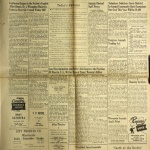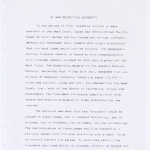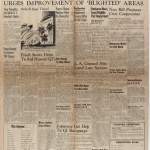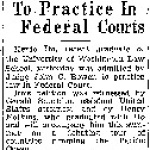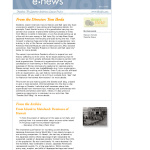Patsy Mink
| Name | Patsy Mink |
|---|---|
| Born | December 6 1927 |
| Died | September 28 2002 |
| Birth Location | Pã'ia, Maui, Hawai'i |
| Generational Identifier |
Lawyer, civil rights advocate, U.S. Representative, author of Title IX, member of Hawai'i's Democratic Party and the Revolution of 1954.
Patsy Takemoto Mink was born in Pā'ia, Maui, on December 6, 1927, to Suematsu and Mitama Takemoto and was Maui High School valedictorian and student body president. After graduation, she attended the University of Hawai'i and later transferred to the University of Nebraska where she challenged segregated student housing. Mink returned to Mānoa to graduate and later applied to various mainland medical schools but her application was denied because of her gender. Mink later entered law school at the University of Chicago where she met John F. Mink, a geology doctoral student. In 1951 they married and had one child, Gwendolyn. Later, they returned to the Islands and Mink began to practice law. However, as the first Japanese American female lawyer in Hawai'i she was not well accepted by the legal profession as a woman.
As a result of her experiences of gender discrimination, Mink became involved in politics, joining the Democratic Party of Hawai'i. "I didn’t start off wanting to be in politics," she once told a reporter. "Not being able to get a job from anybody changed things." [1] In 1956, Mink was elected to the Hawai'i Territorial House and two years later to the Territorial Senate where she later chaired the Education Committee. In 1964, Mink ran for Congress and was elected to her first term standing out in the House of Representatives not only because of her gender and race, but also because of her positions on issues such as public education and civil rights and her opposition to the Vietnam War.
During her career in the House, Mink joined Rep. Bella Abzug of New York to support feminist causes and was one of the authors of the revolutionary Women's Educational Equity Act, known as Title IX. This groundbreaking legislation mandated that any institution receiving federal funding equally support men and women in academics and athletics. The law resulted in a phenomenal growth in women's collegiate athletics programs. After twelve years in the U.S. House, Mink unsuccessfully ran for the Senate losing to Spark M. Matsunaga . In 1977, President Jimmy Carter named Mink assistant secretary of state for oceans and international, environmental and scientific affairs. Despite an unsuccessful mayoral campaign in 1988, Mink would later return to Congress to serve out Daniel Akaka's seat who had been appointed to fill the Senate vacancy following the death of Matsunaga. From 1990 to 2002, Mink once more served in the U.S. House of Representatives as a liberal voice for Hawai'i and the nation. After a month long illness, she died on September 28, 2002, at the age of seventy-four, survived by her husband and daughter.
For More Information
"Hawaii, nation lose 'a powerful voice.'" Honolulu Advertiser , September 29, 2002, A-1.
Matsuda, Mari J. ed. Called From Within: Early Women Lawyers of Hawaiʻi . Honolulu: University of Hawaii Press, 1992.
Mink, Patsy. Congresswoman Patsy T. Mink. Washington, D.C.: Congress of the United States, House of Representatives, [2001].
"Mink, Patsy Takemoto, (1927–2002)." Biographical Directory of the United States Congress. http://bioguide.congress.gov/scripts/biodisplay.pl?index=m000797 .
"Patsy Mink." Honolulu Star-Bulletin , September 29, 2002, A-1.
Patsy Mink: Ahead off the Majority . Documentary film directed by Kimberlee Bassford. Honolulu: Making Waves Films, 2008.
"Patsy T. Mink Papers at the LIbrary of Congress." http://www.loc.gov/rr/mss/mink/mink-about.html .
Footnotes
- ↑ "Hawaii, nation lose 'a powerful voice,'" Honolulu Advertiser , September 29, 2002, A-1.
Last updated April 16, 2014, 9:37 p.m..

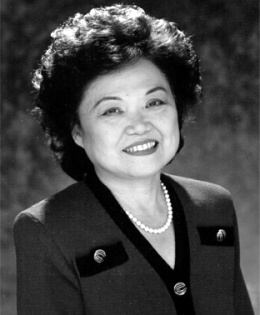 Media
Media

